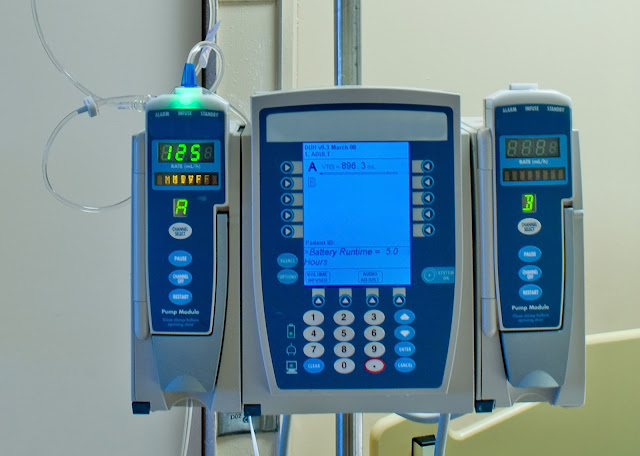Durable Medical Equipment Is An Equipment That Designed To Provide Therapeutic Benefits
 |
| Durable Medical Equipment |
Durable Medical Equipment (DME) refers to a category of medical devices
and equipment that are designed to provide therapeutic benefits or assist
individuals in their daily activities due to a medical condition or disability.
DME is typically prescribed by healthcare professionals to patients who require
long-term or repeated use of specific equipment to improve their quality of
life and manage their medical needs. These devices are built to withstand
regular use and are intended for home use by patients. DME encompasses a wide range of
equipment, including but not limited to wheelchairs, walkers, crutches, canes,
hospital beds, oxygen equipment, nebulizers, patient lifts, and various types
of support and assistive devices.
These items are carefully selected to address specific
medical needs and enhance mobility, independence, and comfort for individuals
with disabilities or chronic conditions. One of the key characteristics of Durable
Medical Equipment is its durability. Unlike disposable medical
supplies, which are used once and then discarded, durable medical equipment’s
is designed to withstand regular use over an extended period. Manufacturers
ensure that DME is constructed using robust materials and engineering
techniques to ensure longevity and reliability. This durability is essential as
it allows patients to rely on their equipment for an extended period without
worrying about frequent replacements or repairs. In addition to durability, another critical aspect of
DME is the customization and fitting process.
Durable Medical Equipment is often tailored to meet the unique needs and
physical characteristics of individual patients. Healthcare professionals and
suppliers work closely with patients to assess their requirements and select
the appropriate equipment. Factors such as body measurements, weight capacity,
mobility limitations, and specific medical conditions are taken into account to
ensure that the chosen equipment fits the patient correctly and provides the
necessary support and functionality. Furthermore, DME plays a crucial role in promoting
independence and improving the overall quality of life for individuals with
disabilities or medical conditions. For example, wheelchairs enable individuals
with mobility impairments to move around freely, participate in daily
activities, and maintain social connections.
Similarly, home oxygen equipment allows patients with respiratory conditions to receive the necessary oxygen therapy while staying in the comfort of their own homes. These devices empower patients to live more fulfilling lives by reducing barriers and facilitating their active participation in society. Access to Durable Medical Equipment is typically facilitated through healthcare insurance coverage or government programs such as Medicare or Medicaid, which help alleviate the financial burden associated with acquiring these devices. However, coverage and reimbursement policies vary, and certain requirements, such as medical documentation and prescriptions, must be met to qualify for DME benefits.



Comments
Post a Comment